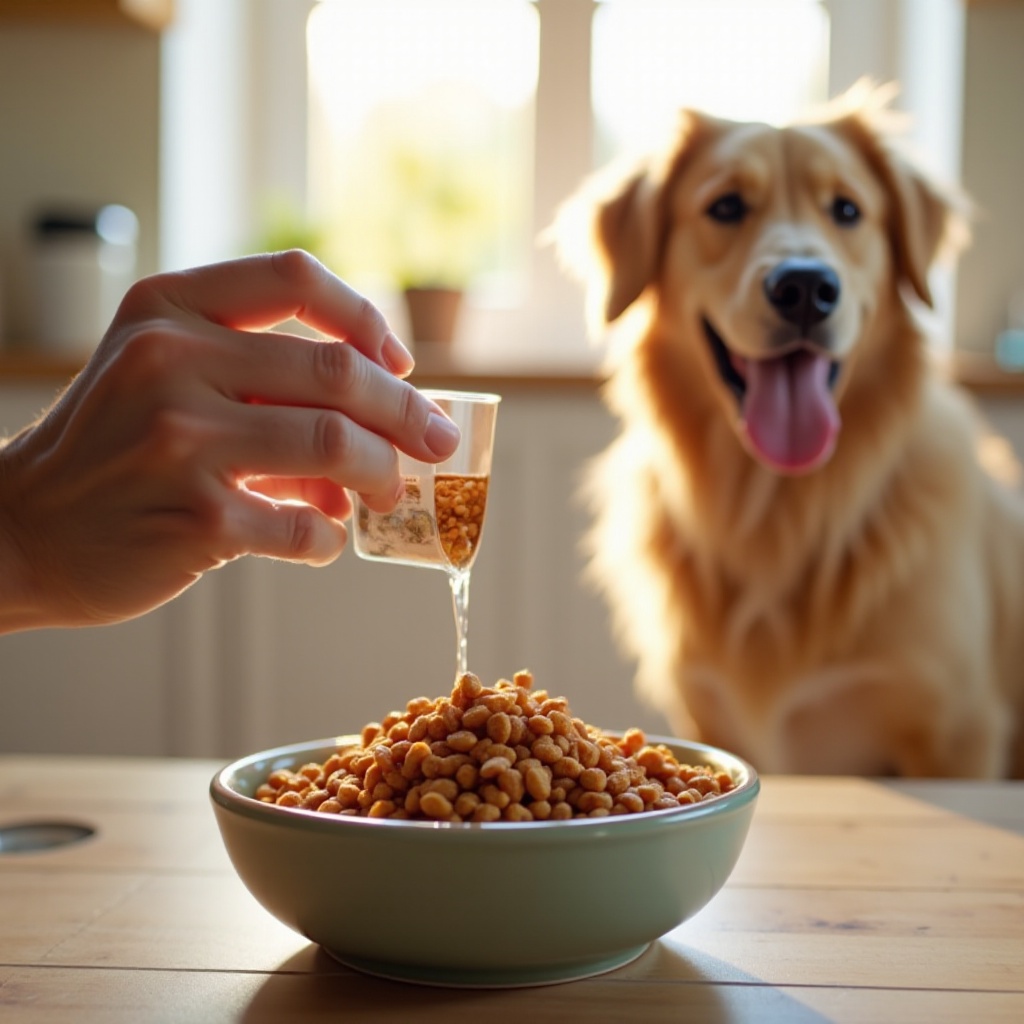Introduction
Choosing the right nutrition for your furry friend can be challenging with the plethora of options available. One option garnering attention is dehydrated dog food. Understanding whether this type of food is good for dogs involves delving into its nutritional benefits, health impacts, potential drawbacks, and tips for making the switch. This article aims to provide a comprehensive guide to help you decide if dehydrated dog food is the right choice for your canine companion.

What is Dehydrated Dog Food?
Dehydrated dog food is a type of pet food that undergoes a dehydration process to remove moisture, preserving the food and making it lightweight and easy to store. This method also helps retain the nutritional value of the ingredients. To serve, you typically add water to rehydrate the food, restoring its original consistency and flavor.
Unlike kibble, which is cooked at high temperatures, dehydrated food uses low heat to remove water content. This method preserves more nutrients and provides a less processed food option. It’s crucial to understand that dehydrated food is not the same as freeze-dried dog food, which involves a different preservation process. Both, however, offer similar benefits in terms of convenience and nutrition.
Nutritional Benefits of Dehydrated Dog Food
Dehydrated dog food offers a rich supply of nutrients due to its preservation method. The low-heat dehydration process helps maintain the integrity of essential vitamins and minerals that can be lost in high-heat cooking methods. Here are some key nutritional benefits:
- Protein Content: High-quality dehydrated dog foods often contain a substantial amount of protein from meat sources, essential for muscle maintenance and energy.
- Vitamins and Minerals: The preservation process retains vital vitamins and minerals necessary for a balanced diet, such as Vitamin A for vision health and calcium for stronger bones.
- Digestive Health: Ingredients like pumpkin, sweet potato, and prebiotics enhance digestive health, ensuring your dog absorbs nutrients effectively.
- Hydration: Once rehydrated, the food provides additional moisture, which aids in your dog’s digestion and overall hydration levels.

Health Benefits of Dehydrated Dog Food
The nutritional benefits of dehydrated dog food translate directly into numerous health advantages for your dog.
- Improved Digestion: The natural ingredients and added water content once rehydrated make this food particularly gentle on your dog’s digestive system, reducing issues such as bloating and constipation.
- Weight Management: Since many dehydrated dog foods contain fewer fillers and carbohydrates, they can help maintain a healthy weight.
- Allergy Relief: The minimal processing and high-quality ingredients can reduce the incidence of food allergies. Additionally, many brands offer grain-free options accommodating dogs with specific dietary restrictions.
- Enhanced Immunity: The retention of essential vitamins and minerals supports the immune system, promoting overall health and vitality.
Potential Drawbacks and Considerations
While there are many benefits, it’s also important to consider potential drawbacks and factors when deciding if dehydrated food is a good option for your dog.
- Cost: Dehydrated dog food can be more expensive than traditional kibble. The quality ingredients and specialized processes contribute to the higher price point.
- Preparation Time: Unlike kibble that you can simply scoop and serve, dehydrated food typically requires time for rehydration. This added step may not be convenient for every pet owner.
- Storage: Although lightweight and easy to store compared to wet food, dehydrated dog food must be kept in a cool, dry place to maintain its quality, and once rehydrated, it must be consumed promptly.
- Palatability: Some dogs might be picky eaters and might take time to adjust to the texture and taste of rehydrated food.

How to Choose High-Quality Dehydrated Dog Food
Selecting high-quality dehydrated dog food involves looking at several key factors:
- Ingredients: Choose foods with whole, recognizable ingredients like real meats, vegetables, and fruits. Avoid products with unnecessary fillers or artificial additives.
- Brand Reputation: Purchase from reputable brands known for their strict quality control and transparency about their ingredients and processes.
- Nutritional Profile: Ensure the food meets AAFCO (Association of American Feed Control Officials) guidelines for a balanced diet suitable for your dog’s age, breed, and health status.
Tips for Transitioning Your Dog to Dehydrated Food
Switching your dog to dehydrated food can be a smooth process with the right approach:
- Gradual Introduction: Start by mixing a small amount of dehydrated food with your dog’s current food. Gradually increase the proportion over 7-10 days.
- Monitor Reactions: Keep an eye on your dog for any signs of digestive upset or allergic reactions. If you notice any issues, consult your veterinarian.
- Hydration: Since this food requires rehydration, ensure you add the appropriate amount of water. This not only enhances the food’s texture but also helps in your dog’s digestive process.
- Consistency and Patience: Some dogs might take longer to adapt. Be consistent and patient, and make the transition as gradual as your pet needs.
Conclusion
Dehydrated dog food offers a nutritious, convenient option for pet owners looking for high-quality, less-processed diets for their dogs. By understanding its benefits, potential drawbacks, and tips for making the switch, you can make an informed decision that’s best for your furry friend’s health and well-being.
Frequently Asked Questions
How long does dehydrated dog food last?
Dehydrated dog food typically has a long shelf life, often ranging from 12 to 24 months, provided it’s stored in a cool, dry place.
Is dehydrated dog food suitable for all dog breeds?
Yes, dehydrated dog food can be suitable for all breeds, but it’s important to choose a formulation that meets the specific nutritional needs of your dog’s size, age, and health status.
Can I mix dehydrated dog food with other types of food?
Yes, you can mix dehydrated dog food with other types of food, such as kibble or wet food, to provide variety and enhance nutritional intake. Always ensure to follow feeding guidelines to avoid overfeeding.
